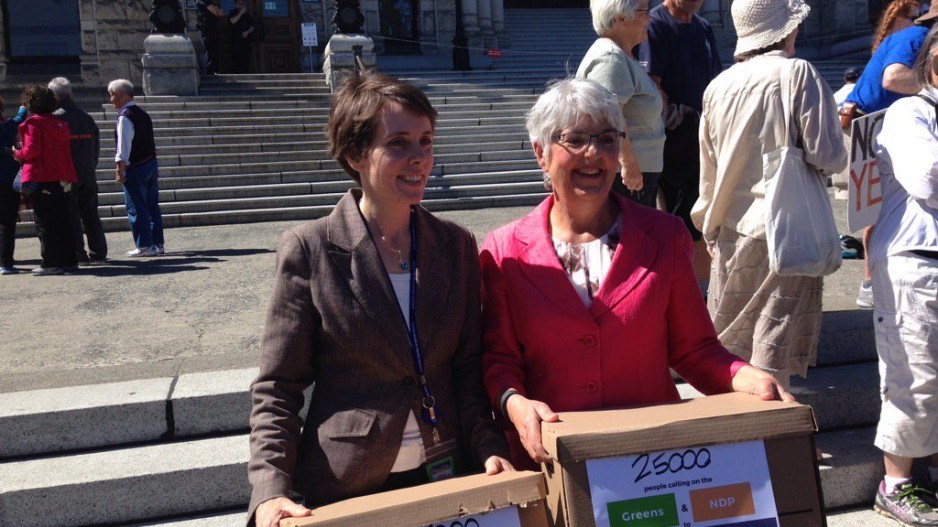When drinking water from the Hullcar aquifer near Armstrong became too polluted to drink, and a nearby dairy farmer was required to pay for a soil test to determine if the pollution was coming from manure, local residents were astounded when the government refused to release the findings of that study.
The B.C. government claimed releasing the information would be a violation of copyright law, since the dairy farmer who paid for the study owned the information.
The Hullcar aquifer controversy wasn’t just one of the more egregious examples B.C.’s weak freedom of information laws, it was also an example of what is wrong with the professional reliance model that B.C. uses for things like permitting.
The collapse of the Mount Polley tailings pond in 2014 also highlighted concerns with the professional reliance model, which requires private companies to hire and pay biologists, archaeologists, engineers, geoscientists and environmental scientists to conduct environmental, engineering and harvesting studies.
That model is now under review. The outcome could have wide-ranging implications for resource extraction industries, including mining, oil and gas and forestry.
“There are people in B.C. who have lost confidence that their government is doing enough to prevent environmental emergencies,” B.C. Environment Minister George Heyman said October 3 in announcing the review.
As part of the review, the government will consult with industry, First Nations and professional associations.
Heyman said it is unlikely that the government will pull back all the work that is currently done by non-government professionals and bring it in house.
“It’s certainly not the intent of the review to achieve a result where all of the monitoring activities by professionals would return to government or the cost associated with them would return to government,” Heyman said. “I would think that would be a highly unlikely result.
“The review that we’re announcing today will make recommendations on whether professional associations that oversee these qualified professionals are employing the best practices to protect the public interest.”
Cowichan Valley MLA Sonia Furstenau, whose political career was launched in no small part by concerns over the professional reliance model, was on hand Tuesday with Heyman to announce the review.
The Cowichan Lake MLA became involved in a community battle over a landfill upstream from Shawnigan Lake that contained contaminated soil. Furstenau became a vocal critic of the landfill, which eventually had its permit cancelled.
“Four years ago, I didn’t know what professional reliance was, but I did know that our community was losing trust in government because of a permit that had been issued to allow a contaminated landfill in our drinking watershed,” Fursteanau said.
Cobble Hill Holdings, the company that ran the landfill, recently filed a defamation suit against Furstenau for comments she made about the company during a rally against the landfill in March.
Heyman said a final report on the review is expected to be complete in the spring of 2018.




